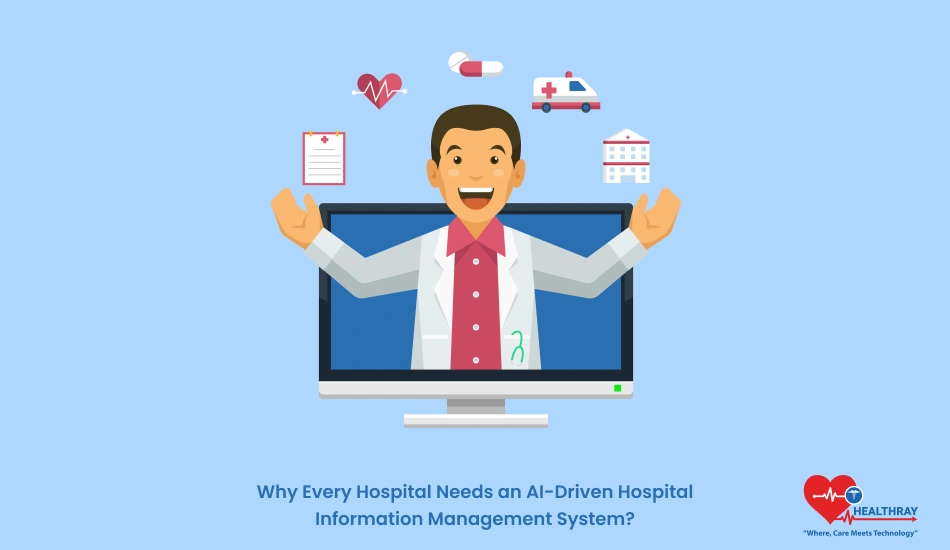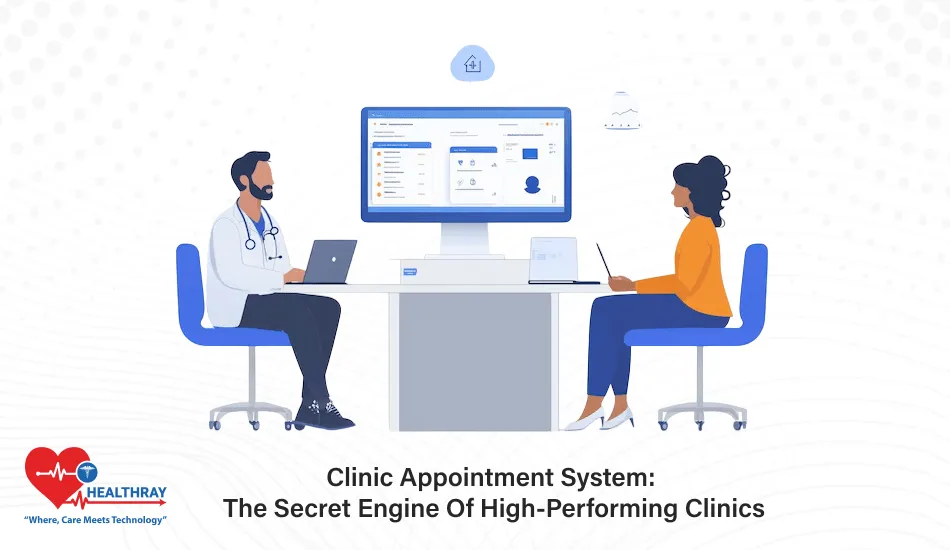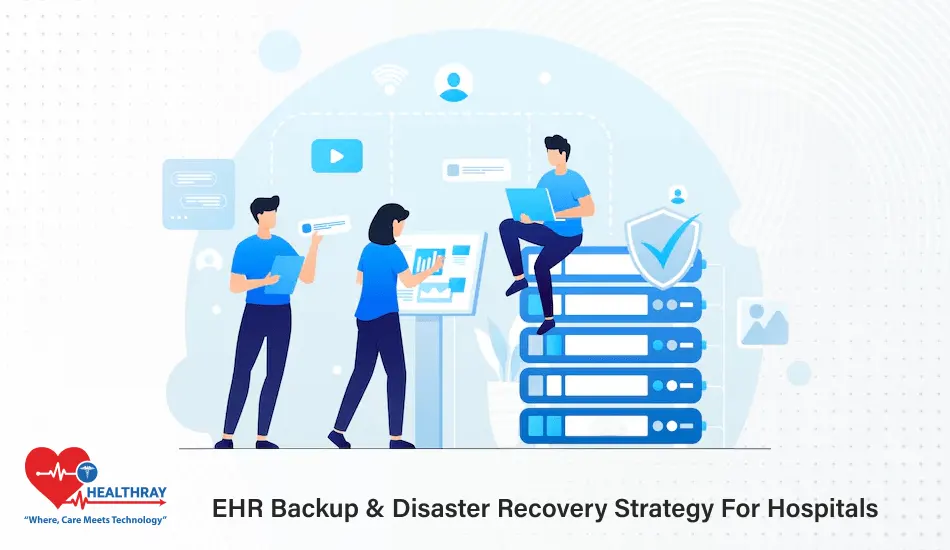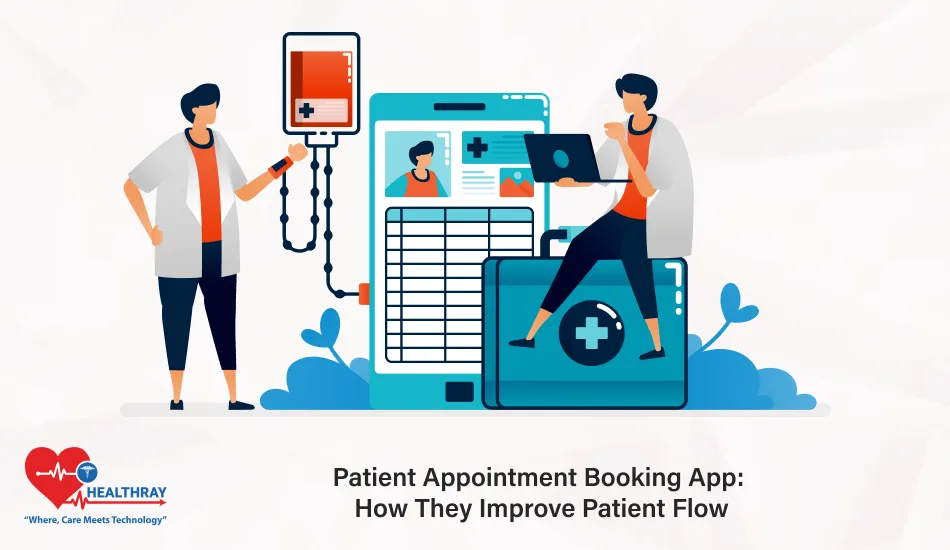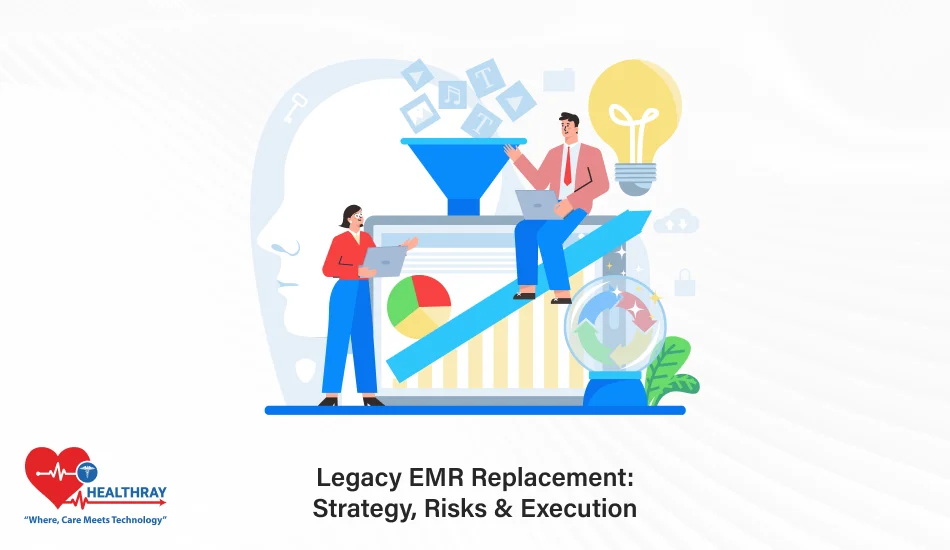Managing a hospital is no small task. It involves juggling patient care, staff schedules, medical records, and administrative operations—all while keeping everything running smoothly. The margin for error is thin, and inefficiencies can have serious consequences. This is where AI-driven Hospital Information Management System step in, revolutionizing the way hospitals operate.
These systems combine advanced technology with practical tools to streamline processes, improve accuracy, and free up time for healthcare providers to focus on what matters most—patients. Whether it’s automating routine tasks, offering data-driven insights, or enhancing patient outcomes, AI is transforming the healthcare landscape.
In this post, we’ll explore how these systems work, their key benefits, real-world applications, challenges to consider, and the trends shaping the future of hospital management. By the end, you’ll have a clear understanding of why adopting an AI-driven system isn’t just a tech upgrade—it’s a strategic move toward better healthcare delivery.
Understanding AI-Driven Hospital Information Management Systems
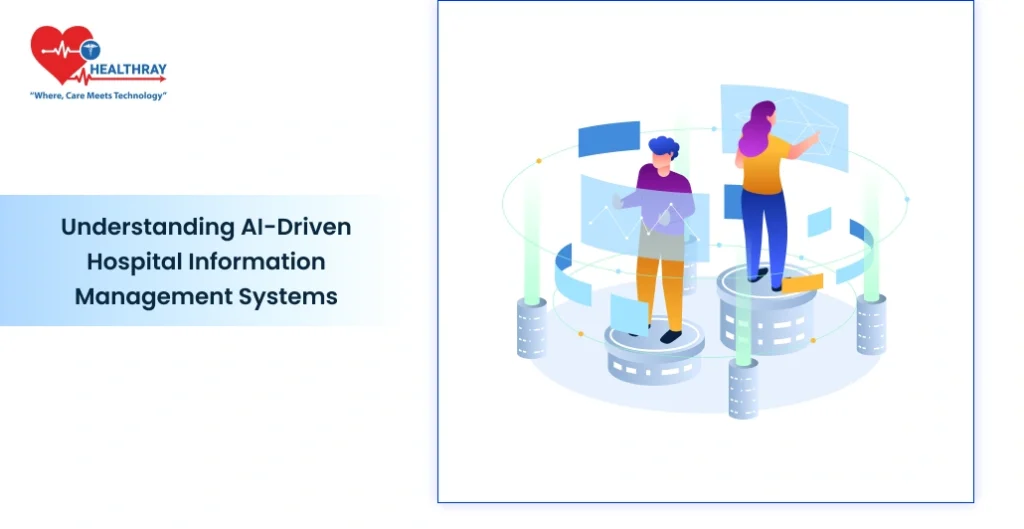
At its core, a hospital information management system (HIMS) is the backbone of hospital operations. It handles everything from patient admissions and medical records to billing and inventory. Now, when you add artificial intelligence (AI) to the equation, the game changes. AI-driven systems go beyond simple data management—they actively analyze, predict, and recommend actions to optimize every aspect of hospital workflows.
What Sets AI-Driven Systems Apart?
Traditional HIMS primarily store and retrieve data. AI-driven systems, on the other hand, process this data to uncover patterns, make predictions, and automate tasks. For example:
- Predictive Analysis: AI can predict patient readmissions, allowing hospitals to proactively intervene and reduce unnecessary stays.
- Automation: Tasks like appointment scheduling, billing, and even diagnostic image analysis can be automated, reducing human error and saving time.
- Decision Support: AI provides actionable insights to assist doctors and administrators in making informed decisions quickly.
Why Hospitals Need This Upgrade
Hospitals generate massive amounts of data every day. Medical records, lab results, patient feedback, and operational metrics all feed into the system. AI ensures that this data doesn’t just sit idle—it transforms it into a tool for improving care and efficiency. From ensuring compliance with healthcare regulations to enhancing the patient experience, AI-driven systems are built to tackle modern healthcare challenges.
This isn’t just about adopting a new tool. It’s about embracing a smarter way of managing operations, one that keeps up with the demands of today’s fast-paced healthcare environment.
Key Benefits of AI-Driven Hospital Information Management Systems
AI-Integrated Hospital Information Management software (HIMS) offer a range of benefits that go beyond just operational improvements. These systems transform the way hospitals deliver care, streamline workflows, and manage resources. Here’s a closer look at the most significant advantages.
Improved Operational Efficiency
Hospitals run on tight schedules, and every minute counts. AI systems optimize workflows by automating repetitive tasks such as appointment scheduling, billing, and patient admissions. They can also predict high-demand times for better resource allocation, ensuring that staff and facilities are used effectively. This eliminates bottlenecks and reduces wait times for patients.
Enhanced Patient Care
Patient care improves when healthcare professionals can focus on their core responsibilities. AI systems assist by offering clinical decision support, such as flagging abnormal test results or suggesting evidence-based treatment options. They can also monitor patient vitals in real-time, alerting staff to potential issues before they escalate.
Cost Reduction
By automating administrative tasks and reducing inefficiencies, AI-driven systems significantly lower operational costs. They also minimize errors in billing and coding, which can lead to costly claim denials or compliance penalties. Predictive maintenance for medical equipment further saves money by preventing unexpected breakdowns.
Data-Driven Decision Making
Hospitals generate enormous volumes of data daily, and AI systems make sense of it. By analyzing trends and patterns, these systems provide actionable insights for decision-makers. Whether it’s improving patient outcomes or optimizing budgets, data-driven strategies ensure smarter decisions and better results.
Improved Compliance and Security
AI systems help hospitals adhere to complex regulatory requirements by automating compliance checks and generating audit-ready reports. Advanced security features, such as real-time monitoring and anomaly detection, protect sensitive patient data from breaches or misuse.
Better Resource Management
AI-driven systems forecast demand for resources like beds, staff, and medical supplies, enabling hospitals to allocate them more effectively. This not only prevents shortages but also reduces waste, ensuring that resources are used where they are needed most.
Personalized Patient Experiences
Patients now expect more than just medical care—they want personalized experiences. AI systems help tailor communication, reminders, and even treatment plans based on individual needs and preferences. This level of personalization enhances patient satisfaction and loyalty.
Real-World Applications and Case Studies
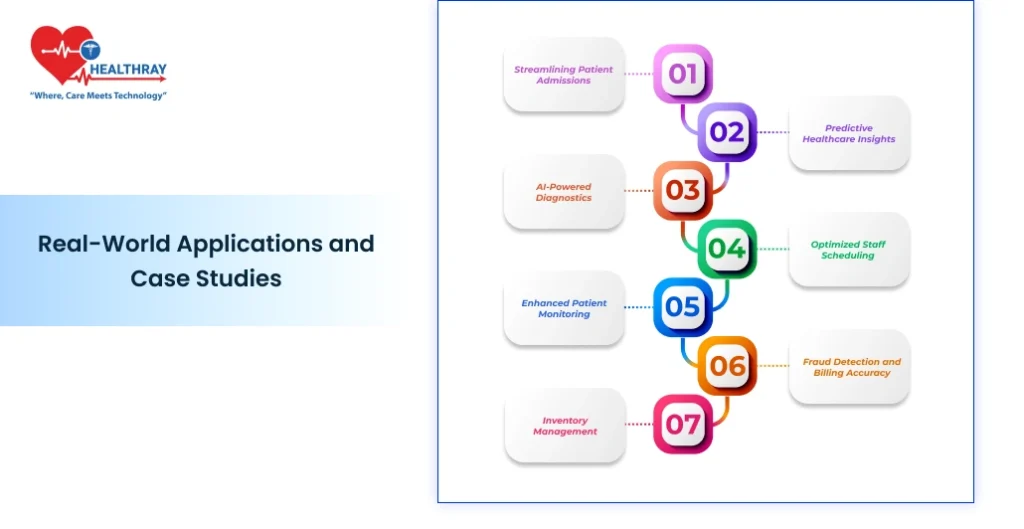
AI-driven hospital information management systems (HIMS) are no longer a futuristic concept. They are being implemented in hospitals around the world with impressive results. Here’s a closer look at some real-world applications and success stories that highlight their transformative potential.
Streamlining Patient Admissions
Hospitals with AI-driven systems have automated the patient admission process. For example, an AI tool can quickly verify insurance details, schedule appointments, and assign beds based on real-time availability. This reduces patient wait times and minimizes administrative errors. In one case, a major urban hospital reported a 30% improvement in patient throughput after implementing AI in their admissions system.
Predictive Healthcare Insights
A hospital in Singapore deployed an AI system to predict patient admissions during flu season. By analyzing historical data and trends, the system forecasted resource needs, allowing the hospital to allocate additional staff and beds in advance. This proactive approach led to a 20% reduction in emergency room overcrowding.
AI-Powered Diagnostics
Radiology departments are leveraging AI to analyze diagnostic images. For instance, AI algorithms can detect anomalies in X-rays or MRIs with remarkable accuracy. A U.S. hospital using AI for breast cancer screening reported a 15% reduction in missed diagnoses, enabling earlier and more effective treatments.
Optimized Staff Scheduling
Staff shortages can disrupt hospital operations, but AI systems are mitigating this issue. A hospital in Canada introduced an AI-based scheduling tool that accounted for staff availability, skill sets, and patient needs. The result? A 25% increase in scheduling efficiency and higher staff satisfaction due to reduced workload imbalances.
Enhanced Patient Monitoring
AI-powered tools are being used to monitor patient vitals in real-time, identifying signs of deterioration before they become critical. A cardiac care unit in India implemented AI monitoring, which reduced response times for emergencies by 40%, ultimately saving more lives.
Fraud Detection and Billing Accuracy
Billing errors and fraudulent claims can cost hospitals millions. An AI-driven system implemented in a European hospital flagged irregularities in billing data, leading to a recovery of over $500,000 in incorrectly processed claims within the first six months of use.
Inventory Management
Managing medical supplies is a constant challenge for hospitals. AI tools predict usage patterns and prevent stockouts or overordering. A hospital in Japan saved 15% annually on medical supplies by using an AI-driven inventory management system that adjusted orders based on demand forecasts.
Challenges and Considerations
Implementing AI-driven Hospital Information Management Software (HIMS) comes with a range of challenges that hospitals need to address to fully realize their potential. These hurdles are not insurmountable but require strategic planning and careful execution.
Integration with Existing Systems
Hospitals often have legacy systems in place that aren’t designed to work with AI-driven solutions. Integrating these systems can be complex, requiring extensive customization and testing. Without a seamless integration, hospitals risk data silos and operational inefficiencies.
Solution: Conduct a thorough audit of existing systems and partner with vendors who specialize in smooth transitions. Phased implementation can also reduce disruptions.
Staff Training and Adaptation
AI systems introduce new workflows, which can be challenging for staff unfamiliar with the technology. Resistance to change is common, especially if employees fear that automation might replace their roles.
Solution: Provide hands-on training sessions and clear communication about the benefits of AI. Highlight how these tools assist rather than replace staff, freeing up time for more meaningful tasks.
Data Security and Privacy Concerns
Handling sensitive patient data is a top priority for hospitals. AI-driven systems require large volumes of data, increasing the risk of breaches or misuse. Non-compliance with regulations like HIPAA or GDPR can lead to severe penalties.
Solution: Ensure that AI systems include robust security features like encryption, role-based access, and real-time monitoring. Regular audits and updates should also be part of the implementation plan.
High Initial Investment
AI-driven systems often require significant upfront costs for hardware, software, and training. For hospitals operating on tight budgets, this can be a deterrent.
Solution: Demonstrate the long-term ROI by highlighting cost savings from reduced errors, better resource management, and improved patient outcomes. Some vendors also offer subscription-based models to lower the initial financial burden.
Accuracy and Reliability
AI systems are only as good as the data they’re trained on. If the data is incomplete or biased, the system may produce inaccurate results, which could impact decision-making.
Solution: Regularly validate the data and use diverse datasets during system training. Work with vendors who prioritize transparency and provide explanations for AI-driven decisions.
Regulatory and Ethical Considerations
Healthcare is a highly regulated industry, and introducing AI comes with unique challenges. For example, ensuring that AI-driven decisions comply with medical ethics and existing laws can be complex.
Solution: Consult legal and ethical experts during the implementation process. Stay updated on evolving regulations to ensure compliance.
Scalability
AI systems might work well in smaller pilots but struggle when scaled to larger operations. A system that performs efficiently in one department might slow down when expanded across the entire hospital.
Solution: Plan for scalability from the start. Choose systems that are designed for modular expansion and test performance at various scales during the pilot phase.
Future Trends in AI for Hospital Management
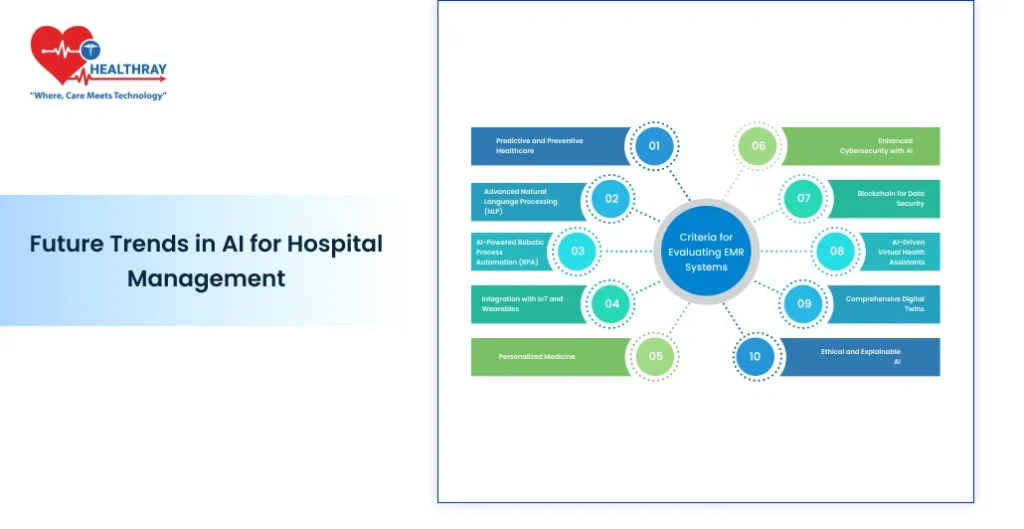
As AI continues to evolve, its role in health information management is set to expand significantly. The future promises smarter, faster, and more integrated solutions that will redefine healthcare delivery. Here are some of the key trends shaping the future of AI in hospital management.
Predictive and Preventive Healthcare
AI systems are becoming increasingly capable of predicting patient health issues before they occur. By analyzing patient data, such as genetics, lifestyle, and medical history, AI can identify individuals at risk for chronic diseases. Hospitals will shift toward preventive care models, reducing hospitalizations and improving long-term health outcomes.
Advanced Natural Language Processing (NLP)
NLP will enhance communication between healthcare providers and AI systems. This includes improved voice-to-text transcription for patient records and advanced chatbots that can answer patient queries or assist with appointment scheduling. NLP will also support real-time translation for multilingual environments, making healthcare more inclusive.
AI-Powered Robotic Process Automation (RPA)
AI-driven RPA will automate even more administrative tasks, such as insurance claim processing and compliance reporting. This will free up hospital staff for more critical responsibilities and reduce administrative overhead.
Integration with IoT and Wearables
The Internet of Things (IoT) and wearable health devices will work seamlessly with AI systems to provide continuous monitoring of patients. Hospitals will receive real-time updates on patient vitals, enabling faster interventions. This integration will also improve post-discharge care, as wearable devices send data directly to hospital systems for ongoing monitoring.
Personalized Medicine
AI will play a pivotal role in tailoring treatments to individual patients. By analyzing a combination of genetic, environmental, and lifestyle data, hospitals can provide personalized treatment plans, improving the effectiveness of care and reducing adverse reactions.
Enhanced Cybersecurity with AI
With increasing reliance on digital systems, data breaches remain a concern. AI systems will adopt more sophisticated methods to detect and prevent cyber threats, using real-time monitoring and machine learning algorithms to predict and neutralize vulnerabilities.
Blockchain for Data Security
AI combined with blockchain technology will provide a secure, decentralized way to store and share medical data. This will enhance patient privacy and streamline data-sharing between institutions without compromising security.
AI-Driven Virtual Health Assistants
Virtual assistants powered by AI will become common in hospitals. These assistants can help patients navigate hospital services, remind them of medications, or guide them through post-treatment recovery. They’ll also assist doctors by summarizing patient histories and suggesting treatment plans.
Comprehensive Digital Twins
Hospitals will increasingly use digital twins—virtual replicas of physical hospital systems or even patient physiology—to simulate and optimize operations. AI will analyze these digital twins to predict bottlenecks, test new processes, or simulate treatment outcomes for patients.
Ethical and Explainable AI
As AI systems become more integral to hospital management, there will be a greater emphasis on explainability. Hospitals will demand systems that can provide clear reasoning for decisions to ensure they align with ethical standards and medical guidelines.
Conclusion
The adoption of AI-driven hospital information management systems is no longer a question of “if” but “when.” These systems address the growing complexities of hospital operations, from streamlining workflows to enhancing patient outcomes. By automating repetitive tasks, analyzing vast amounts of data, and offering actionable insights, AI empowers hospitals to focus on what truly matters—providing exceptional patient care.
While challenges like integration, training, and data security need to be addressed, the long-term benefits far outweigh the hurdles. Hospitals that invest in these technologies position themselves as leaders in a rapidly evolving healthcare landscape. They not only improve their efficiency but also build trust with patients by delivering personalized and timely care.
Looking forward, AI’s role in the Hospital Management System will continue to grow, with advancements in predictive analytics, IoT integration, and personalized medicine shaping the future of healthcare. For hospital administrators, healthcare IT professionals, and C-suite executives, the message is clear: AI-driven systems are not just a tool—they are a strategic necessity for staying competitive and delivering value in modern healthcare.
